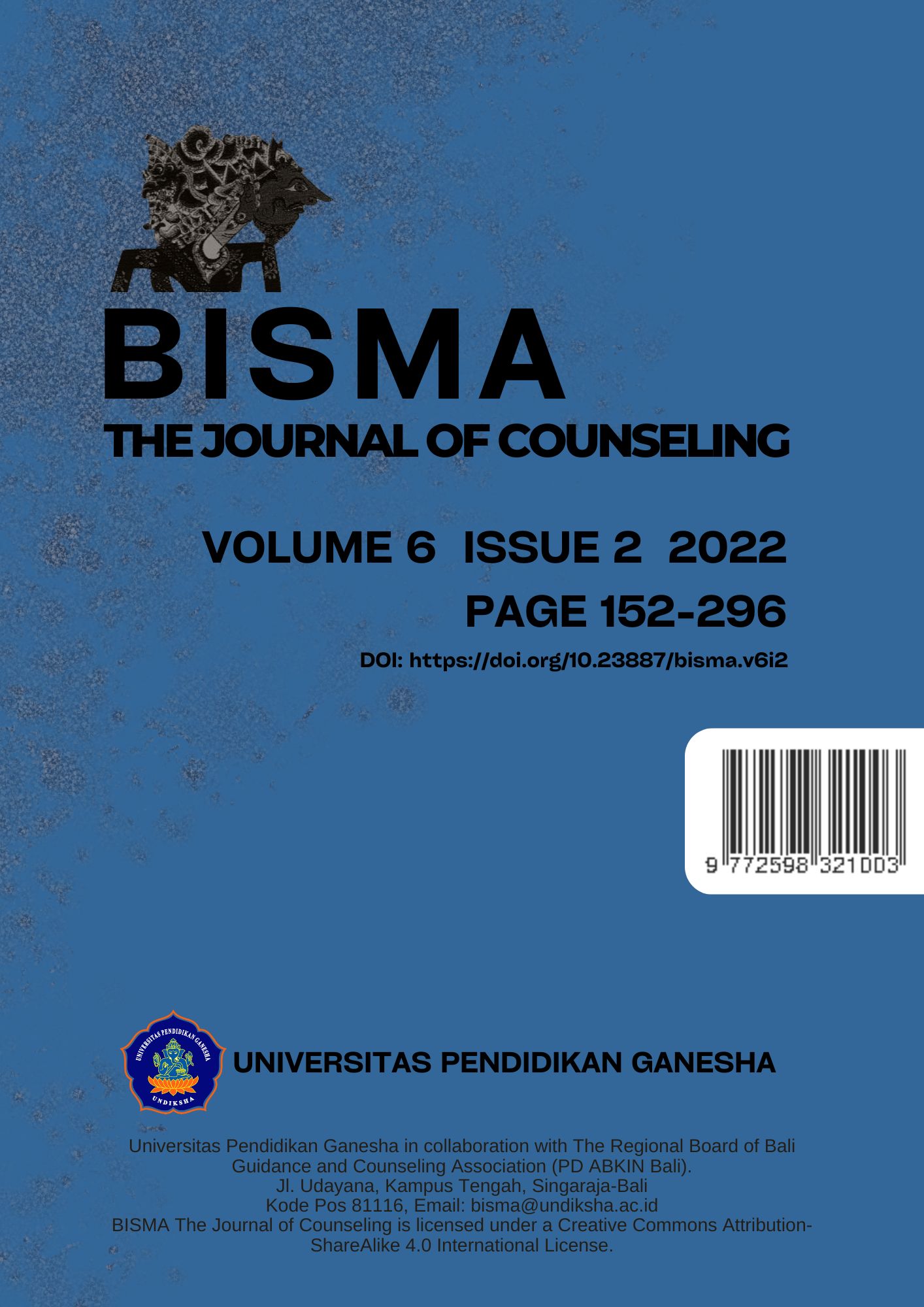Effectiveness of Early Childhood Online Learning
DOI:
https://doi.org/10.23887/bisma.v6i2.53658Keywords:
Learning, Childhood, OnlineAbstract
This research was conducted to examine the effectiveness of the implementation of learning in early childhood networks at Umbuik Nagari Kindergarten. The purpose of this research is to effectively implement learning in early childhood networks at Umbuik Nagari Kindergarten. This study uses a qualitative research design with interview techniques to obtain an overview of the learning system at Umbuik Nagari Kindergarten. In this study, the data collection techniques required used the interview, documentation, and observation methods. Then the data were analyzed descriptively. From the research findings that there is no online learning curriculum, limited supporting infrastructure, the ability of educators who are technologically stuttering, lack of communication between educators and parents, lack of support from parents to carry out the online learning process, many parents who do not have outdated communication tools. information, children's interest in learning decreases.
References
Abidin, Z., Hudaya, A., & Anjani, D. (2020). Efektivitas Pembelajaran Jarak Jauh Pada Masa Pandemi Covid-19. Research and Development Journal of Education, 1(1), 131–146. https://doi.org/10.30998/rdje.v1i1.7659
Aji, R. H. S. (2020). Dampak Covid-19 pada Pendidikan di Indonesia: Sekolah, Keterampilan, dan Proses Pembelajaran. SALAM: Jurnal Sosial Dan Budaya Syar-I, 7(5), 395–402. https://doi.org/10.15408/sjsbs.v7i5.15314
Aminah, S. (2021). Sinergitas Guru dan Orang Tua dalam Pembelajaran Daring di Masa Pandemi Covid-19. Jurnal Pendidikan Guru, 2(1), 33–42. https://doi.org/10.47783/jurpendigu.v2i1.186
Arifa, F. N. (2020). Tantangan Pelaksanaan Kebijakan Belajar dari Rumah dalam Masa Darurat Covid-19. Info Singkat: Kajian Singkat Terhadap Isu Aktual Dan Strategis, 12(7), 13–18. https://berkas.dpr.go.id/sipinter/files/sipinter-630-989-20200707165734.pdf
Assidiqi, M. H., & Sumarni, W. (2020). Pemanfaatan Platform Digital di Masa Pandemi Covid-19. Prosiding Seminar Nasional Pascasarjana, 298–303. https://proceeding.unnes.ac.id/index.php/snpasca/article/download/601/519
Firman, F., & Rahman, S. R. (2020). Pembelajaran Online di Tengah Pandemi Covid-19. Indonesian Journal of Educational Science (IJES), 2(2), 81–89. https://doi.org/10.31605/ijes.v2i2.659
Ghirardini, B. (2011). E-Learning Methodologoes. Federal Ministry of Food, Agricultur and Consumer Protection.
Gustiani, S. (2020). Students’ Motivation in Online Learning During Covid-19 Pandemic Era: a Case Study. Holistics Journal, 12(2), 23–40. https://jurnal.polsri.ac.id/index.php/holistic/article/view/3029
Hasan, M. (2009). Pendidikan Anak Usia Dini. Diva Press.
Khoiruzzadi, M., Barokah, M., & Kamila, A. (2020). Upaya Guru dalam Memaksimalkan Perkembangan Kognitif, Sosial dan Motorik Anak Usia Dini. JECED : Journal of Early Childhood Education and Development, 2(1), 40–51. https://doi.org/10.15642/jeced.v2i1.561
Korucu, A. T., & Alkan, A. (2011). Differences between M-learning (Mobile Learning) and E-learning, Basic Terminology and Usage of M-learning in Education. Procedia - Social and Behavioral Sciences, 15, 1925–1930. https://doi.org/https://doi.org/10.1016/j.sbspro.2011.04.029
Miarso, Y. (2004). Menyemai Benih Teknologi Pendidikan. Prenada Media Group.
Muawanah, E. I., & Muhid, A. (2021). Strategi Meningkatkan Motivasi Belajar Siswa Selama Pandemi Covid – 19 : Literature Review. Jurnal Ilmiah Bimbingan Konseling Undiksha, 12(1), 90–98. https://doi.org/10.23887/jjbk.v12i1.31311
Palestina, S. (2021). Efektifitas Penggunaan Daring bagi Anak PAUD. Yaa Bunayya: Jurnal Anak Usia Dini, 5(1).
Sadikin, A., & Hamidah, A. (2020). Pembelajaran Daring di Tengah Wabah Covid-19. Biodik: Jurnal Ilmiah Pendidikan Biologi, 6(2), 109–119. https://doi.org/10.22437/bio.v6i2.9759
Sinaga, E. P. (2019). Blended Learning: Transisi Pembelajaran Konvensional Menuju Online. Prosiding Seminar Nasional Fakultas Ilmu Sosial Universitas Negeri Medan, 3, 855–860. https://www.google.com/url?sa=t&rct=j&q=&esrc=s&source=web&cd=&cad=rja&uact=8&ved=2ahUKEwjf56WP6oftAhVHVH0KHUFrBnUQFjAEegQIBhAC&url=https://cor
Sobron, A. ., Bayu, B., Rani, R., & Suswandari, M. (2019). Pengaruh Daring Learning terhadap Hasil Belajar IPA Siswa Sekolah. Prosiding Seminar Nasional Sains Dan Enterpreneurship VI, 1–5. https://www.researchgate.net/publication/338713765_Pengaruh_Daring_Learning_terhadap_Hasil_Belajar_IPA_Siswa_Sekolah_Dasar
Sujiono, Y. N. (2015). Konsep Dasar Pendidikan Anak Usia Dini. Indeks.
Tanjung, R. (2020). Peran Orangtua dalam Pendidikan Anak Usia Dini di Masa Pandemi Covid-19. Murhum : Jurnal Pendidikan Anak Usia Dini, 1(2), 64–73. https://doi.org/10.37985/murhum.v1i2.18
Yeliany, A., & Roesminingsih, E. (2021). Efektivitas Pembelajaran Jarak Jauh Terhadap Pembelajaran. Jurnal Inspirasi Manajemen Pendidikan, 09(04), 873–886.
Downloads
Published
Issue
Section
License
Copyright (c) 2022 Warni Holiza, Rakimahwati

This work is licensed under a Creative Commons Attribution-ShareAlike 4.0 International License.









